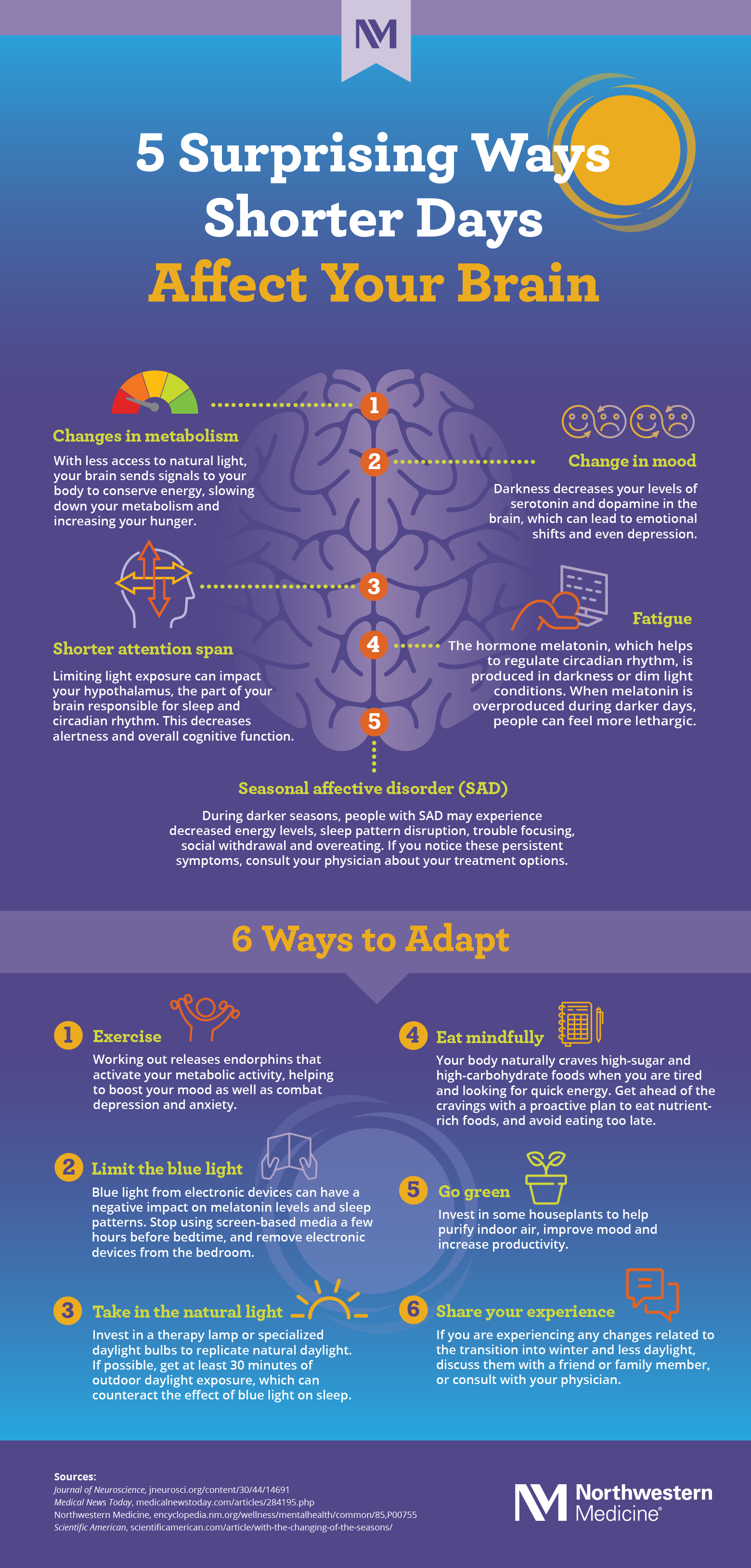5 Surprising Ways Shorter Days Affect Your Brain [Infographic]
And How You Can Adapt
Updated December 2022
Feeling sluggish? The culprit might be your circadian clock, which takes cues from how much light your body gets during a day and tells you when to be asleep and awake.
Shorter winter days mean less light exposure, causing changes to your circadian rhythm.
"Our body, including all of our organs, is aligned to match the environment. It's a beautiful symphony orchestra," says Phyllis C. Zee, MD, PhD, neurologist and chief of Sleep Medicine in Neurology at Northwestern Medicine. "It's all coordinated through the master pacemaker, which is located in the suprachiasmatic nucleus (SCN) of the brain."
A disruption to the circadian rhythm can affect several functions in your body.

SAD Facts
If you can't shake the winter blues, consider consulting your physician about seasonal affective disorder (SAD), a seasonal depression that affects 5% of people in the U.S. SAD typically starts in fall and goes away in spring.
SAD symptoms can include:
- Fatigue
- Disruption of sleep patterns
- Overeating and craving carbohydrates
- Trouble focusing
- Social withdrawal
Our body is aligned to match the environment.— Phyllis C. Zee, MD, PhD
SAD treatment may involve:
- Light therapy
- Talk therapy
- Vitamin D supplements
- Medications prescribed by a psychiatrist
Feeling hungry, foggy and sluggish is a normal response to shorter days. If you continue to feel this way, consider talking to your physician about SAD and your treatment options.
Download 5 Surprising Ways Shorter Days Affect Your Brain [Infographic]





